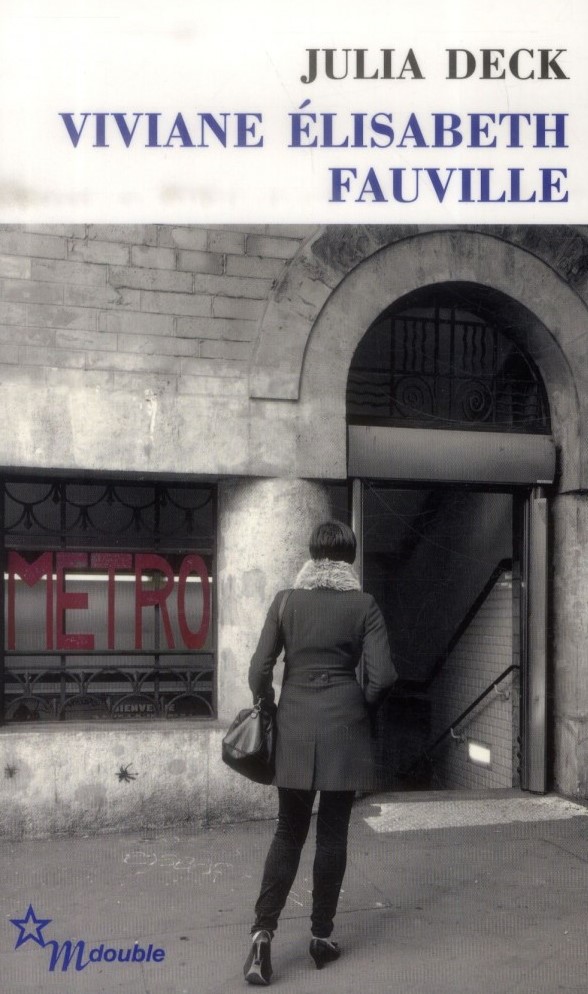Viviane Elisabeth Fauville by Julia Deck

Let’s start with a confession : I have an obsession with the back covers of books. Capturing the essence of a book within just a few compelling sentences is an art I almost respect as much as the one of writing a book itself. So of course when I read the first words on the back of Viviane Elisabeth Fauville, there was no way for me to simply put the book back on its shelf :
“Vous êtes Viviane Élisabeth Fauville. Vous avez quarante-deux ans, une enfant, un mari, mais il vient de vous quitter. Et puis hier, vous avez tué votre psychanalyste. Vous auriez sans doute mieux fait de vous abstenir. Heureusement, je suis là pour reprendre la situation en main.”
(You are Viviane Élisabeth Fauville. You are forty-two years old and have a child and a husband, but he has just left you. And then yesterday, you killed your psychoanalyst. It would have doubtless been better if you had abstained from this. Happily, I am here to take control of the situation.)
Now I am objectively quite far from being 42 and murdering my therapist while taking care of my newborn baby all by myself, as Viviane’s character does. Yet Julia Deck’s first novel is one to make myself, and any reader really, doubt my own truth. Deck having an educational background in both literature and psychology is no surprise here. She offers us a troubling, yet never despairing, dive into madness by questioning the stability of the subject – and uses some very fun writing tricks to do so.
The most striking one is grammatical. If Viviane were to state her pronouns, as we more and more often do these days, her answer would probably look like : you/her/ours. While the main character technically remains the same person all along, Deck switches points of view sometimes within the same page. In one paragraph, the second person singular forces one to strongly identify with Viviane ; in the next, she is a distinct she again.
This unreliability in identity is a recurring theme throughout the novel : Viviane kills, then investigates her very own crime. She is both a murderer and a detective in search for the motive of her own violence. Dialogues and monologues are never explicitly distinguishable, which also contributes to us questioning the reality of the people surrounding the main character–especially that of her mother’s haunting presence. Motherhood is not exactly depicted as fulfilling here ; the author rather remarks on the overwhelming weight it can represent for women in contemporary society. Viviane’s own child is perhaps her only stable landmark, but that is really all she is – nothing more than a voiceless object that requires to be fed every other hour.
Existence and sanity thus truly appear contradictory in Viviane Elisabeth Fauville, with one excluding the other. Overall, the influence of absurdist fiction on Deck’s work is tangible, and I especially recommend trying out this short novel if that is a genre you are interested in. I only suggest you stay away from your therapist for a couple of weeks after finishing this book–unless you have an axe to grind!
Viviane Elisabeth Fauville by Julia Deck, 2012, Les Editions de minuit.
Viviane by Julia Deck, translated by Linda Coverdale, 2014, The New Press.
Click here to purchase this book with us in French or here in English.


